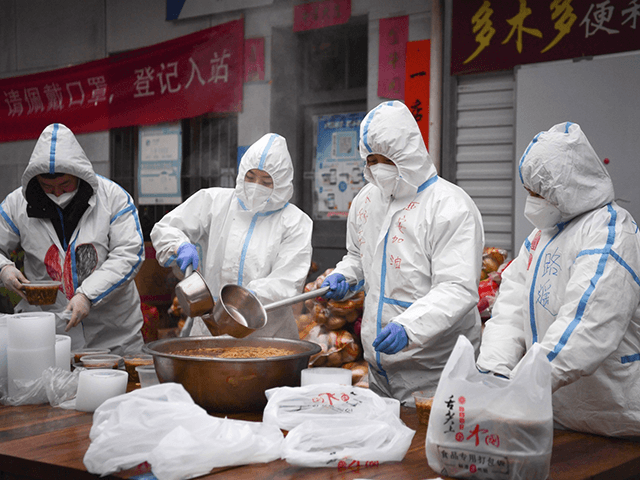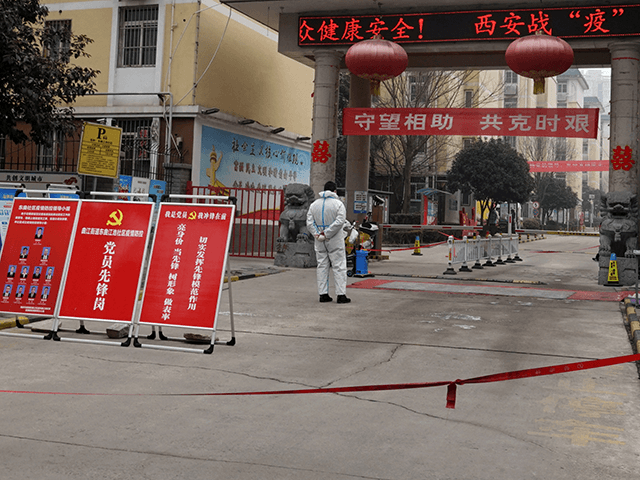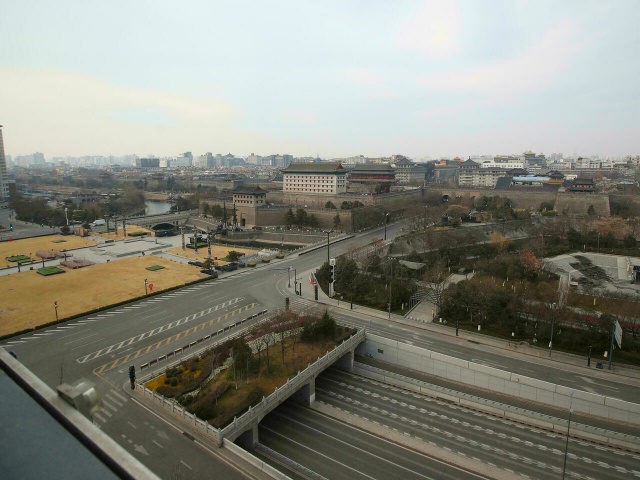The Chinese state propaganda outlet Global Times reported on Thursday that authorities in the locked-down metropolis of Xi’an had shut down two hospitals for three months, despite the Chinese coronavirus situation there being so severe that authorities largely ban people from leaving their homes.
The two hospitals — Xi’an Gaoxin Hospital and Xi’an International Medical Center Hospital — were implicated in separate cases of patients enduring severe health conditions losing their lives because the hospitals refused to treat them.
“With a weak sense of responsibility, both hospitals failed to fulfill their duty to rescue the wounded and save lives, and failed to implement the core system of medical quality management,” the Global Times condemned, “such as first diagnosis responsibility and emergency treatment to critically ill patients.”
The state newspaper reported ominously that the Xi’an Health Commission would require the hospitals to undergo “rectification” for at least three months, and they cannot open until the commission, part of the Communist Party government, deemed its protocol sufficiently improved. The individuals in charge of the hospital, the message continued, would be “held accountable,” without elaborating.

In this photo released by China’s Xinhua News Agency, volunteers wearing protective suits package meals for delivery to people under lockdown in Xi’an in northwestern China’s Shaanxi Province, Tuesday, Jan. 4, 2022. Hospital officials in the northern Chinese city of Xi’an have been punished after a pregnant woman miscarried after being refused entry, reportedly for not having current COVID-19 test results. (Zhang Bowen/Xinhua via AP)
It also reported that one of the hospitals, the International Medical Center Hospital, issued a profuse apology and a vow to “learn lessons from” the deaths.
“We sincerely accept the decision by the Xi’an Health Commission, and will suspend operations for rectification immediately,” the statement read in part. “We will deeply reflect on, learn lessons from, and make rectifications immediately, and hold relevant personnel in charge accountable.”
Xi’an has been a source of consistent embarrassment to the Communist Party for the almost month that dramatic lockdown protocols have been in place there. The Party trapped the city’s 13 million citizens under a lockdown that banned them from leaving their homes or procuring food in response to rapidly growing numbers of Chinese coronavirus cases there. The Chinese coronavirus originated in Wuhan, China, in 2019; while the Chinese government insisted that it “defeated” the virus in March 2020, it has failed to contain rolling outbreaks nationwide.
The current outbreak allegedly began in Inner Mongolia in October after a communist tour group from Shanghai traveled the country, bringing the virus with them. The Chinese government has failed to properly explain how or if simultaneous outbreaks in Xi’an, parts of Beijing, and Henan province are related, but it has partially blamed frozen food and other foreign cargo for “importing” the disease back home. Scientists in the free world generally agree that contaminated surfaces are not a significant spreader of Chinese coronavirus.
In China, however, clinging to the theory that imported materials are infecting Chinese citizens through contact with a surface allows for the constant blaming of foreign sources for any continued spread. It also allows ostentatious “disinfection” displays — like the spraying down of nearly every outdoor surface in Xi’an with chemicals in December — that appear to show the government taking the disease seriously.
Xi’an citizens began to complain this month, using the Chinese-controlled social media outlet Weibo, of poor treatment both on the part of officials and of the hospitals in question. The two individuals who died, prompting the hospitals to shut down, were an unborn child eight months into his or her mother’s pregnancy and a middle-aged man who suffered a heart attack and received no care.
In the former case, the pregnant mother arrived at the hospital with severe abdominal pain, but her latest Chinese coronavirus test showing her negative for the virus was more than two hours old, so the hospital left her to miscarry on the street, according to relatives on Weibo. The Weibo testimony described the woman “bleeding profusely outside the facility for two hours” as her husband pleaded without success to hospital administrators to treat her.
The second case surfacing on Weibo this week was of a man who, according to his doctor, had signs of heart failure but was denied care and died of a heart attack. The daughter lamented in the post that she had not been “more uncooperative” to encourage hospital officials to take him as a patient.
The Chinese Communist Party’s immediate response to these stories was to issue an edict banning “negative news” about the handling of the lockdown in Xi’an from appearing on social media.
“From Jan. 4, people are banned from posting details of the pandemic restrictions or information about the road situation, videos, links, mini-apps or photos of the situation, particularly negative news,” Xi’an officials decreed. “There is background surveillance operating on all WeChat groups, and any negative news will be deleted as soon as it is sent. Please bear this in mind and pass the message on.”

A man in a protective suit stands guard at an entrance of a residential compound in Xi’an in China’s northern Shaanxi province on January 5, 2022. (Photo by STR/AFP via Getty Images)
WeChat is another Chinese social media outlet heavily regulated by the Party.
The censorship followed not just the two deaths, but growing cries for help and complaints against the government from locked-down citizens running out of food.
“I’m about to be starved to death. There’s no food, my housing compound won’t let me out, and I’m about to run out of instant noodles … please help!” one Weibo user lamented in the early days of the Xi’an lockdown.
Similar complaints caused significant embarrassment for the Chinese government, resulting in a flood of government-posted content showing officials allegedly distributing some vegetables to detained communities.

COMMENTS
Please let us know if you're having issues with commenting.